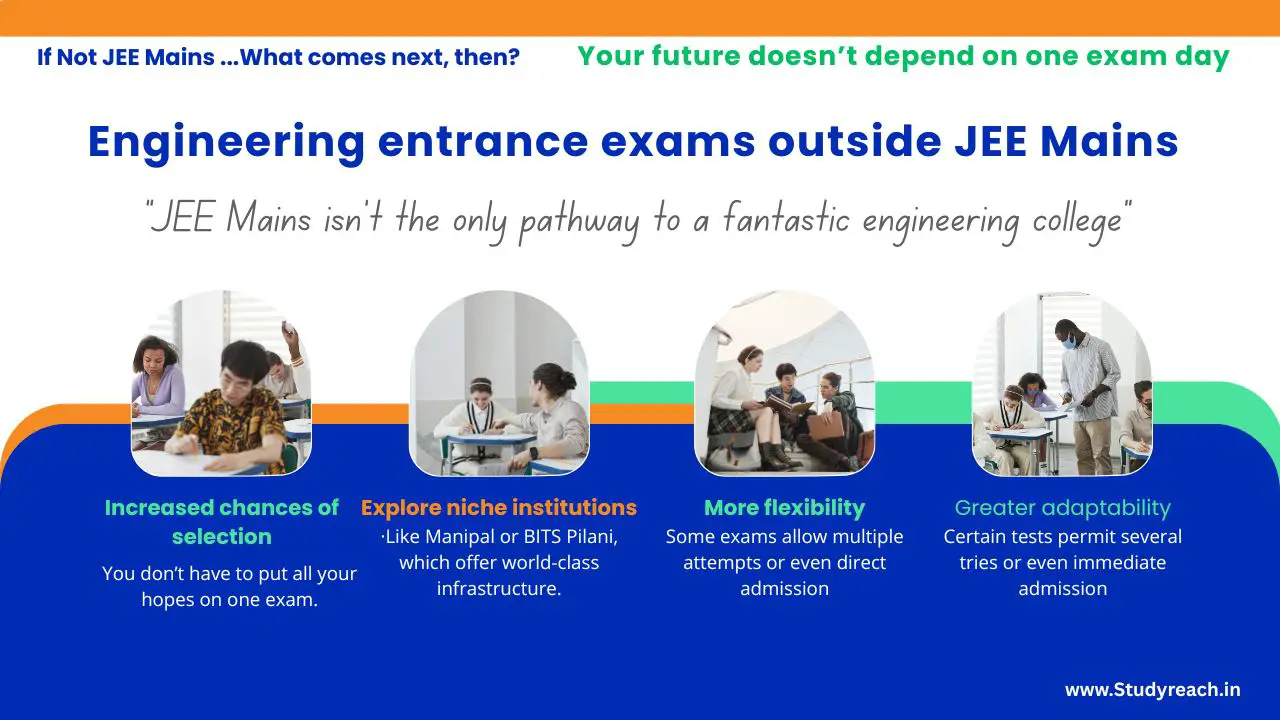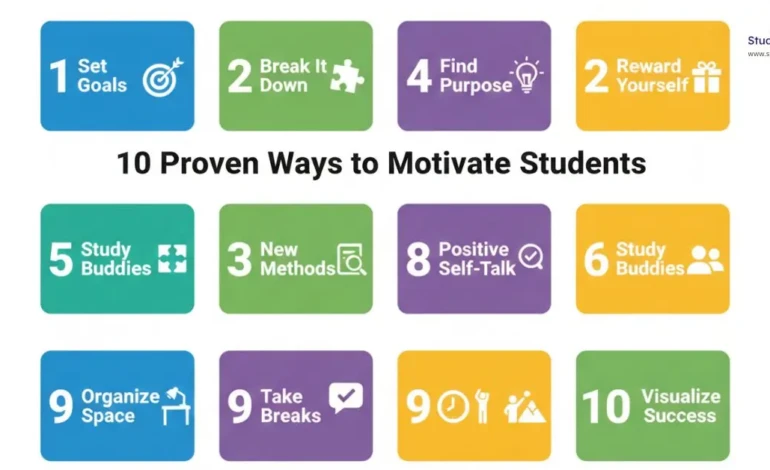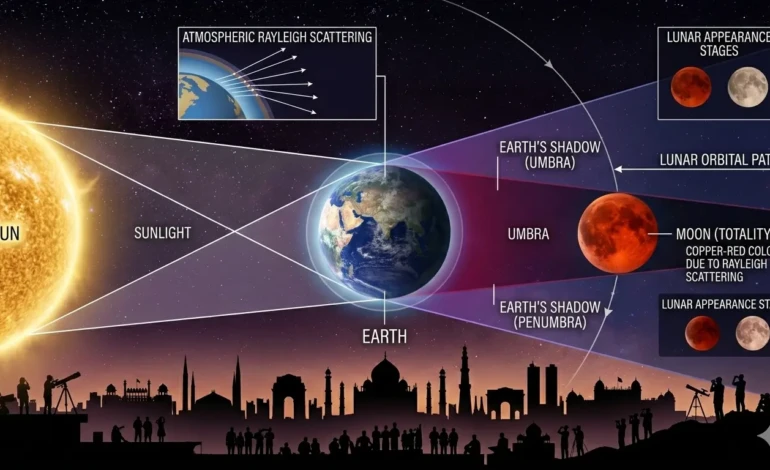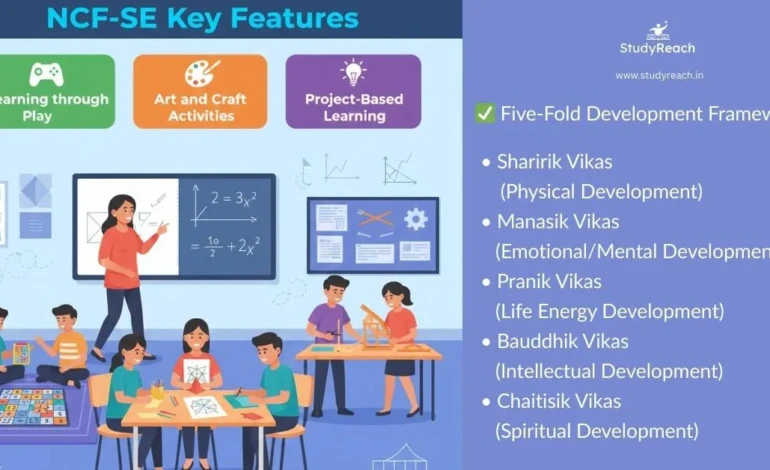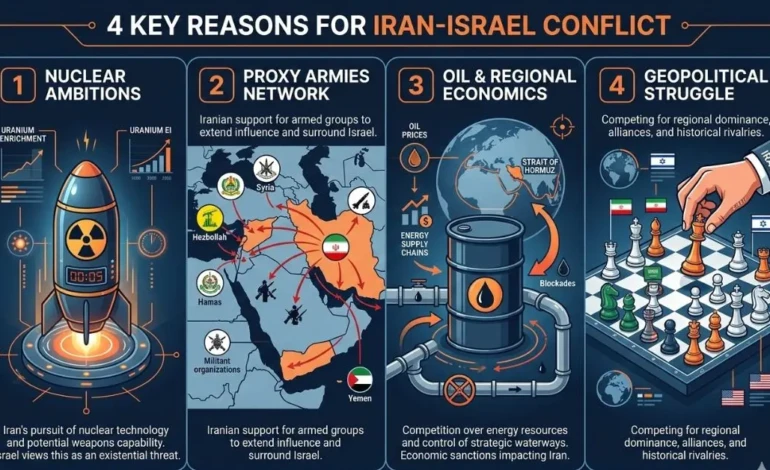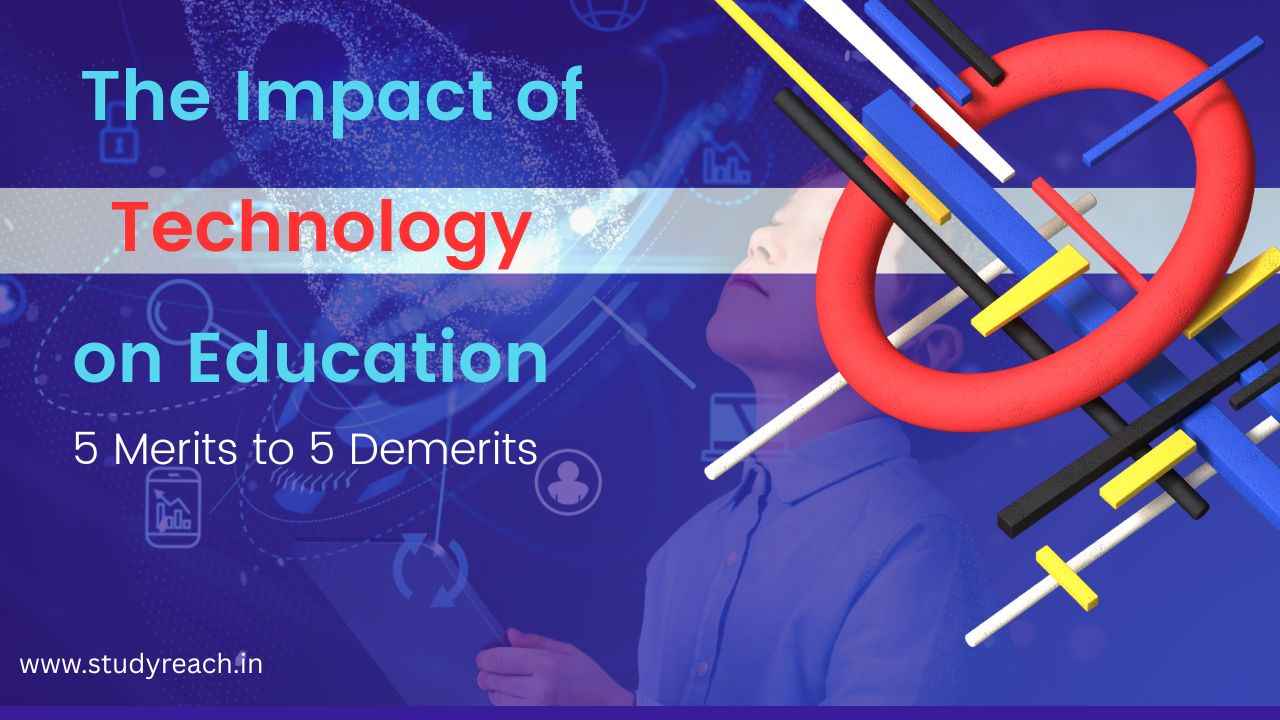B.Ed Degree – 14 Must-Know Facts you should know
Shailendra Porwal
- June 23, 2025
- 18 min read
- 176 Views
What You’ll Learn in This Article
If you’re considering a career in teaching or simply curious about what a B.Ed (Bachelor of Education) degree is, you’re at the right page. In this detailed guide, we’ll break down everything you need to know about the B.Ed program -Here are the key points you’ll discover in this article:
- What is a B.Ed Degree
- The Importance of a B.Ed Degree in the Education Sector.
- Historical Evolution of the B.Ed Degree
- Eligibility Criteria for a B.Ed Program
- Course Structure and Duration
- Specializations Available in B.Ed
- Age Group or Level-Specific Specializations
- Key Attributes of a B.Ed Graduate
- Core Subjects and Syllabus of B.Ed
- Skills Developed During B.Ed
- Career Opportunities After B.Ed.
- 12 Benefits of Pursuing a B.Ed Degree
- 13 Challenges Faced During a B.Ed Program
- 14 B.Ed vs Other Education Degrees
Regardless of whether you are a student, a parent, or an individual considering a career in teaching, this article will provide you with a comprehensive and detailed insight into why the B.Ed degree is fundamental to contemporary education.

1. What is a B.Ed Degree
A Bachelor of Education (B.Ed) is an undergraduate degree which is basically designed to prepare for a career in teaching industry. You can be entitled only after obtaining a bachelor’s degree in any field (Science, Commerce or Humanities). B.Ed acts as a bridge between subject knowledge and pedagogy. Specially in India, it is a required qualification for those aspiring to become school teachers at the elementary, secondary, or senior secondary levels.
The B.Ed program encompasses you the master or the art of teaching. It provides a thorough training experience throughout the degree that covers the psychology of learning, educational philosophy, child development, classroom management techniques, assessment strategies, and more. In other words it transforms you from a graduate into a qualified educator.
What distinguishes this degree is its dual emphasis: it not only imparts extensive theoretical knowledge but also involves students in hands-on teaching practices. This ensures that when a B.Ed graduate enters in a classroom, they are not only confident but also capable of managing various learning environments effectively.
2. The Importance of a B.Ed Degree in the Education Sector.
So, why is a B.Ed degree is an essential degree in Education industey? Well, it’s pretty straightforward—it validates your teaching skills. Without it, most educational boards won’t even look at your resume for teaching positions, especially in public or government-supported schools.
Plus, it serves as a professional standard. Teachers who hold a B.Ed are trained in lesson planning, managing classrooms, teaching methodology and engaging students effectively. This leads to a much better learning experience for everyone involved. Even more importantly, it helps to cultivate ethical and responsible teachers who realize the importance of influencing young minds in teaching.
Given the rising demand for quality education, having a B.Ed degree has become essential. As educational systems shift towards more inclusive and student-focused methods, this degree helps ensure that teachers remain relevant and effective in teaching profession. Nowadays, Schools are searching for teachers who are not just knowledgeable but also good at sharing that knowledge effectively—and that’s precisely what B.Ed graduates bring to the table..
3. Historical Evolution of the B.Ed Degree
A.Origins and Development of Teacher Education
In the earlier ages anyone with knowledge could do teaching, however as educational theories grew and students needs became more concern so clear clear shift toward creating specialized teacher education programs. So in 19th and 20th centuries structured B.Ed degree gained prominence.
In India, the establishment of teacher training institutions like the Regional Institutes of Education (RIEs) marked a turning point. These institutions emphasized the need for a pedagogically sound and professionally trained teaching workforce. The B.Ed degree thus became the standard.
B. Changes in Curriculum Over the Years
The B.Ed curriculum has seen some major changes. It used to be all about rigid theories, but now it’s got practical modules, hands-on learning, and tech integration. The National Council for Teacher Education (NCTE) in India has been key in making sure the curriculum is consistent across different institutions.
Modern B.Ed programs emphasize:
- Inclusive education practices
- Child psychology and development
- ICT (Information and Communication Technology) in education
- Ongoing internal assessments instead of just rote exams
Today’s B.Ed degree is quite dynamic. These changes make sure that teachers are not just knowledgeable but also flexible in facing today’s classroom challenges.nts
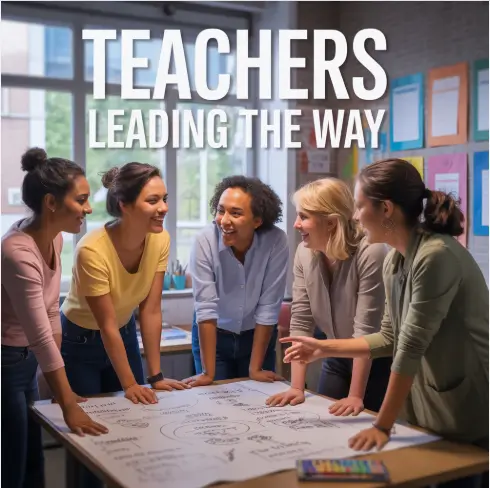
4. Eligibility Criteria for a B.Ed Program
A. Academic Requirements
To enroll in a B.Ed program, candidates typically need a bachelor’s degree in Arts, Science, or Commerce from a recognized university. The minimum percentage required usually ranges from 50% to 55%, though this can vary depending on the university and the reservation policies in place.
Entrance exams like DU B.Ed, IGNOU B.Ed, or state-specific tests such as UP B.Ed JEE or Bihar B.Ed CET are commonly required. These assess a candidate’s aptitude, reasoning, and teaching potential.
B. Age Limit and Other General Requirements
Generally, there isn’t a strict upper age limit for most B.Ed programs, but some state-level exams might set an age cap (like 35 years). Still, most future teachers go for their B.Ed right after graduating, usually between 21 and 30 years old.
Other key requirements are:
- Proficiency in languages (either English or regional languages, based on the medium of instruction)
- Medical fitness certificates required by some institutions
- Background checks or character certificates
By meeting these eligibility criteria, only dedicated and capable candidates can advance into this challenging yet fulfilling profession.
5. Course Structure and Duration
Course Structure
Visit an official website https://bed.delhi.gov.in/bed/bed-program
Duration of the Program
The B.Ed program is typically a two-year full-time course, divided into four semesters. In some universities, a one-year intensive version may still be available for in-service teachers or those with postgraduate degrees, but the two-year format is widely accepted and recommended by the NCTE.
The full-time nature of the course allows for immersive learning, including theoretical classes, workshops, and field-based training. Distance learning options are available too, notably through IGNOU and other open universities, catering to working professionals or those in remote areas.
Hands-On Training and Internships
You can’t really call a B.Ed course complete without some solid teaching practice. Most programs feature a 20-week internship in actual schools, spread out over the semesters. This field experience allows you to:
- Watch seasoned teachers at work
- Teach classes on your own
- Get guidance and constructive criticism
- Grasp the dynamics of schools and the diversity of students
“Practical training connects the dots between theory and what happens in the classroom. It builds confidence and prepares future educators to navigate real school environments with empathy, discipline, and creativity.”

6. Specializations Available in B.Ed
Subject-Specific Specializations
When you think about teaching, you probably don’t picture a one-size-fits-all approach, right? That’s where subject-specific specializations in B.Ed come into play. Depending on a student’s academic background and interests, B.Ed programs provide specializations like
- English
- Mathematics
- Science (Physics, Chemistry, Biology)
- Social Studies
- Computer Science
- Hindi and other regional languages
These specializations make sure you not only learn how to teach but also what to teach in an effective way of your interesting subjects. So, if you studied Chemistry, for example, your B.Ed classes will concentrate on the pedagogy of science, lab management, visual aids for complex topics, and how to make science fun in the classroom.
Let’s face it—there’s nothing more annoying than a subject expert who can’t teach. Specialization takes care of that problem.
7. Age Group or Level-Specific Specializations
In addition to subjects, B.Ed also lets future educators focus on age-specific teaching—because teaching a six-year-old is completely different from teaching a sixteen-year-old.
Modules like:
- Early Childhood Education (Pre-primary and Primary levels)
- Secondary Education (Grades 6 to 10)
- Senior Secondary Education (Grades 11 and 12)
- Inclusive Education (Teaching children with special needs)
This division allows teachers to customize their techniques, lesson plans, and disciplinary strategies based on the cognitive and emotional development related to age.
For instance, someone preparing for early childhood education will study play-based learning, storytelling, and behavioral reinforcement—basically, how to create a supportive environment for very young learners.
8. Key Attributes of a B.Ed Graduate
Pedagogical Knowledge
One of the key qualities of a B.Ed graduate is a strong foundation in pedagogy. In simple terms, pedagogy refers to the science and art of teaching. While anyone can pick up a textbook, not everyone can effectively convey that information in a way that is engaging, understandable, and relevant to students.
A B.Ed graduate learns:
- How students learn and process information
- Which teaching strategies are best suited for different subjects and student profiles
- How to incorporate real-life examples and multimedia tools
- How to tailor lessons for various learning styles
Pedagogical knowledge also encompasses instructional design—organizing a syllabus, selecting suitable teaching aids, evaluating learning outcomes, and adjusting the approach when necessary.
Classroom Management Skills
Let’s face it: teaching isn’t just about presenting lessons—it’s about managing a room full of eager, curious, and often distracted students. That’s why classroom management is a fundamental aspect of B.Ed training.
You learn how to:
- Establish classroom rules and expectations
- Maintain discipline without being overly strict
- Foster an inclusive and respectful learning atmosphere
- Address disruptions, bullying, and sensitive topics
Effective classroom management is crucial for ensuring that learning can actually happen. Just picture trying to teach algebra while students are busy in talking, moving, self-destructing these sounds chaotic, right? B.Ed graduates are equipped to prevent that chaos, channel energy positively, and create a safe space for learning.
This skill is particularly important in today’s classrooms, where students come from diverse backgrounds and often face various behavioral challenges.
Communication and Presentation Abilities
Teaching is 90% communication. If you can’t explain a concept clearly or hold the attention of your students, you’ll struggle—no matter how brilliant your ideas are. B.Ed programs heavily emphasize communication and presentation skills.
This includes:
- Verbal clarity and tone modulation
- Body language and eye contact
- Use of visual aids like charts, models, and slides
- Public speaking and storytelling techniques
In short, B.Ed graduates are trained to not only deliver content but to deliver it well, making sure students stay engaged and actually learn something worthwhile.
“It’s the behind-the-scenes magic that elevates an ordinary lesson into a remarkable learning experience. Pedagogy turns content delivery into an art form—and B.Ed graduates are trained artists.”

9. Core Subjects and Syllabus of B.Ed
Every B.Ed program includes foundational subjects that provide the theoretical backbone of teaching. These are not about specific school subjects but about the broader principles of education. Think of them as the “why” and “how” behind teaching.
Visit official website : https://ncert.nic.in/pdf/syllabus/Syllabus_BEd.pdf
10. Skills Developed During B.Ed
Analytical Thinking and Problem Solving
Every teacher has to play detective a little. What’s causing this student to struggle? How can I adjust my lesson to keep a mixed-ability class engaged? How do I make a textbook topic enjoyable?
B.Ed graduates are trained to assess classroom dynamics, pinpoint problems, and develop effective solutions. This skill set is useful for:
- Curriculum design
- Student assessments
- Disciplinary strategies
- Time management
- You evolve into someone who doesn’t just react but responds thoughtfully, with empathy and creativity. Analytical thinking also aids in self-reflection and ongoing improvement.
Emotional Intelligence and Empathy
Teaching is an incredibly emotional profession. You interact with students who might be facing everything from academic pressure to family issues. Emotional intelligence—the capacity to recognize, manage, and express your emotions while being mindful of others’ feelings—is essential.
This training encourages you :
- Self-awareness
- Empathetic listening
- Non-verbal communication
- Conflict resolution
These aren’t merely soft skills—they’re essential tools for survival. A teacher with strong emotional intelligence fosters better relationships, builds trust, and cultivates a nurturing classroom atmosphere.
Leadership and Teamwork
Finally, B.Ed prepares you to take on leadership roles—in the classroom and beyond. Teachers frequently organize school events, head subject departments, and even shape policy decisions. You’ll acquire skills to:
- Organize group projects
- Collaborate with peers
- Lead student clubs or academic teams
- Take initiative in school activities
Whether you aspire to be a school principal one day or just want to be a valued team member, these leadership abilities are a significant advantage.
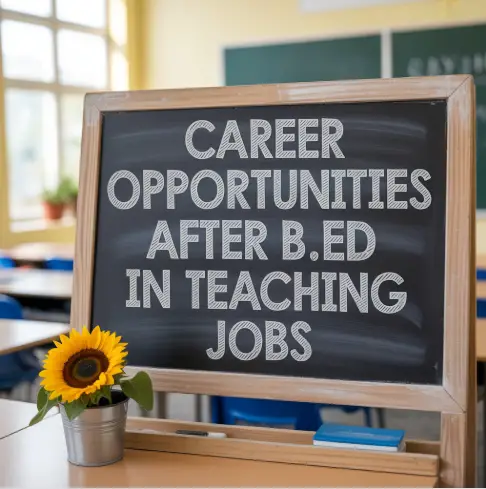
Career Opportunities After B.Ed
In Teaching Jobs
A B.Ed degree is like your ticket to an exciting teaching career in schools. Once you finish your B.Ed, you can apply for teaching jobs in public, private, and international schools. Depending on what you specialize in, you could teach at:
- Primary level (Grades 1–5)
- Upper primary and secondary level (Grades 6–10)
- Senior secondary level (Grades 11–12)
Most government schools in India require candidates to pass teacher eligibility tests such as:
- CTET (Central Teacher Eligibility Test)
- State-level TETs (like UPTET, HTET, TSTET)
Plus, international schools are on the lookout for B.Ed graduates who have strong communication skills and modern teaching methods.
What’s even cooler? The job options go beyond just traditional teaching. You can also become a:
- Subject Matter Expert
- Academic Coordinator
- Curriculum Developer
- Remedial Instructor
With the demand for quality teachers on the rise, having a B.Ed degree gives you a strong advantage in a competitive job market. It’s not just about landing a job—it’s about creating a meaningful career.
In Educational Management
Outside the classroom, a B.Ed graduate can explore opportunities in educational administration and management. If you have a knack for leadership and organization, these positions might be perfect for you.
Popular career options include:
- School Principal or Vice-Principal
- Academic Supervisor
- School Counselor
- Education Consultant
These roles involve managing school operations, training staff, planning curriculum, maintaining discipline, and working with educational boards. A solid B.Ed background paired with leadership skills can really help you climb the administrative ladder.
Higher Education and Research Opportunities
If you’re academically driven and want to advance further, a B.Ed can lead you to higher education and research in the education sector. After completing your B.Ed, you can pursue:
- M.Ed (Master of Education)
- MA in Education
- Postgraduate
12 Benefits of Earning a B.Ed Degree
Impact on Society
Every profession has its advocates, but teachers are the builders of every field. A B.Ed graduate has the power to impact society fundamentally—by molding the leaders of tomorrow.
- Through your dedication, you:
- Cultivate critical thinking and creativity
- Promote gender equality and inclusivity in educational settings
- Help reduce social inequality through high-quality education
Your influence extends far beyond the limits of textbooks. You spark dreams, develop talents, and often become a pivotal figure in your students’ journeys. In this context, teaching is not merely a profession; it is a societal obligation, and the B.Ed degree prepares you for this role exceptionally well.
Professional Knowledge and Accreditation
The professional certification required to teach in formal education systems is provided by a B.Ed. degree. Both government and many private schools in countries like India demand it for instruction.
You will become proficient in:
- Improves your chances of finding a job
- Gives your instruction legal standing.
- Increases your trustworthiness with employers and coworkers.
Your options will be limited to unofficial teaching jobs like private tutoring or work at unlicensed institutions if you don’t have a B.Ed. Thus, earning a B.Ed. is not just a choice if you are dedicated to being a teacher; it is essential.
Personal Growth and Fulfillment
A Bachelor of Education degree provides you with essential skills and the confidence needed to pursue this vocation with purpose. Throughout the duration of the program, you experience considerable personal growth:
- Your patience is improved
- You develop a deeper sense of empathy
- Your communication abilities are enhanced
- You learn to view the world from a child’s perspective
The degree teaches you not only how to share knowledge but also how to influence character. There is an unmatched sense of fulfillment in realizing that your teachings are making a significant difference in the lives of young learners. You transform into more than merely an instructor; you become a mentor, a guide, and occasionally, a role model.
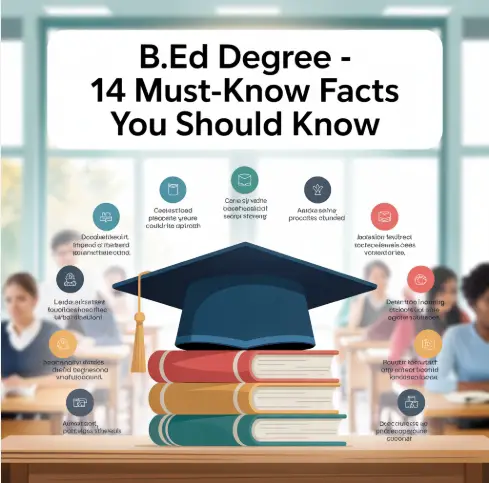
13 Challenges Faced During a B.Ed Program
Academic and Practical Balance
The answer? Effective planning, ongoing effort, and solid backing from faculty mentors. Learning to balance various responsibilities during your B.Ed is excellent training for the multitasking demands of real teaching.
Time Management and Workload
Time is your greatest adversary in a B.Ed course. From crafting detailed reflections after every lesson to getting ready for unexpected evaluations, you often feel like you’re in a race against time.
Sound tiring? It can be—but it also fosters discipline and efficiency. The B.Ed program teaches you how to prioritize, handle stress, and enhance productivity—skills that will be crucial in your teaching career.
Emotional and Social Challenges
Teaching takes a lot of emotional strength. As a B.Ed student, you’ll encounter various situations that will test your patience, empathy, and adaptability:
Some students may feel socially isolated, particularly in rural placements or during internships that are far from home. However, these challenges are what help you grow. You’ll learn to build resilience, seek support, and enhance your emotional intelligence—qualities that not only make you a better teacher but also a better person.
14. B.Ed vs Other Education Degrees
B.Ed vs D.Ed
A common confusion among aspiring educators is the difference between B.Ed (Bachelor of Education) and D.Ed (Diploma in Education). While both lead to teaching careers, they serve different purposes and are suited for different levels of education.
B.Ed | D.Ed |
2-year undergraduate degree | A 2-year diploma |
Required for teaching classes 6 to 12 | Designed for those aiming to teach pre-primary or primary classes (classes 1 to 5) |
Focused on pedagogy, subject specialization, and advanced teaching methods. | More focused on basic teaching techniques, storytelling, classroom management for young children |
B.Ed vs M.Ed
Another important distinction is between B.Ed and M.Ed (Master of Education). B.Ed is a foundational professional degree, while M.Ed is a postgraduate degree pursued after completing B.Ed.
B.Ed prepares you for teaching in schools. | M.Ed prepares you for roles in educational leadership, research, and curriculum design. |
B.Ed vs B.A/B.Sc. Education
Then there’s the comparison between B.Ed and B.A./B.Sc. in Education, which are typically integrated programs. These integrated courses combine a bachelor’s degree in a subject (like Arts or Science) with professional education training.
Example:
- A. + B.Ed (4-year integrated)
- Sc. + B.Ed (4-year integrated)
These are excellent options for students who are sure about a teaching career early on. Instead of doing a separate B.A. and then a B.Ed (which takes 5 years), the integrated course saves a year and ensures a cohesive learning experience.
However, those who switch to teaching after doing a regular B.A./B.Sc. often opt for the standalone B.Ed to gain their teaching credentials.
Conclusion
The Bachelor of Education (B.Ed) degree is more than just a credential—it’s a pathway to influencing future generations. In a world where education always need changes, the role of a teacher has become increasingly important, dynamic, and impactful than ever before.
From teaching methods to emotional intelligence, and from managing classroom behavior to embracing digital tools, the B.Ed program equips future educators for every challenge they might face in their careers. Whether you’re interested in teaching young children, instructing high school students, developing curricula, or taking on educational leadership roles, the B.Ed program provides the essential groundwork for all.
B.Ed continue to grow. It’s not just a mere formality anymore—it’s a transformative journey that shapes not only careers but also lives.
FREQUENTLY ASKED QUESTION
Q1: Is B.Ed compulsory for teaching in all schools?
Ans Yes B.Ed degree is mandatory for teaching in recognized schools, especially for middle and secondary levels. Some private schools may allow exceptions, but government and top private institutions require it.
Q2: Can I pursue B.Ed through distance learning?
Ans : Absolutely. Many universities like IGNOU, Annamalai University, and Tamil Nadu Open University offer B.Ed through distance mode, especially for in-service teachers. However, practical training components remain compulsory.
Q3: What is the average salary after B.Ed?
Ans : Salaries vary based on experience, location, and institution. A fresher in a private school may earn ₹15,000–100,000/month, while government teachers start at ₹35,000–balle balle /month with job security and benefits.
Q4: How is B.Ed different from a teaching diploma?
Ans : B.Ed is a degree-level program for teaching secondary and senior secondary students, while diplomas like D.Ed or BTC are shorter and designed for primary level teaching. B.Ed offers broader career options.
Q5: What are the entrance exams for B.Ed?
Common entrance exams include:
- DU B.Ed Entrance
- IGNOU B.Ed Entrance
- UPTET, CTET for teaching eligibility
- State-specific CETs like Bihar B.Ed CET, Rajasthan PTET.
Please fill the below for, in ase if you have any query/suggestions, or you need to more on any topic. We would be happy to solve your queries.



